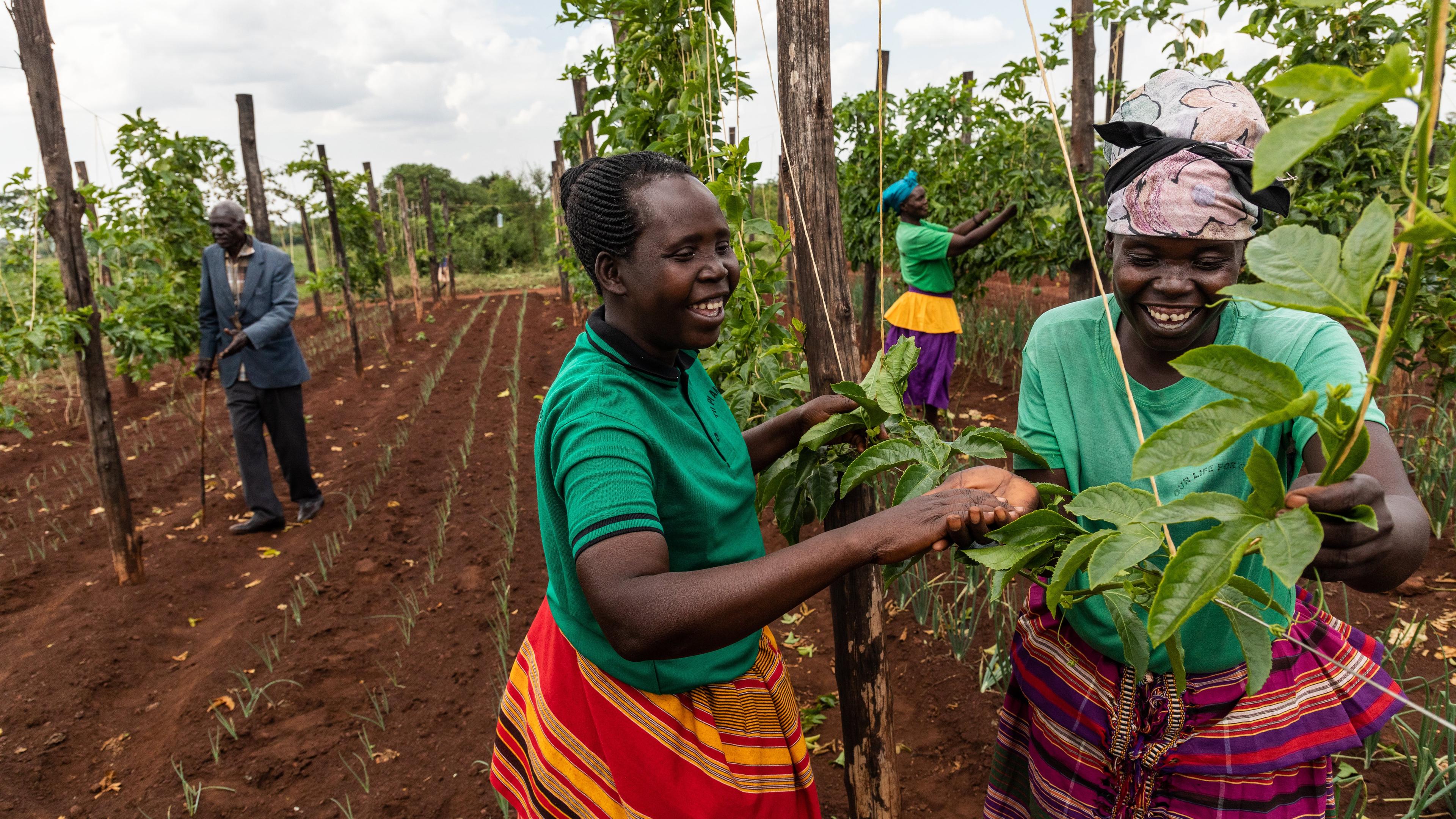Presenting The Humanitarian Innovation Programme cohort 2022!
 © FAO
© FAOThe process of evaluating the proposals has been finalized. The Humanitarian Innovation Programme received 86 applications this year, which is an all-time high number. Among these, 9 projects were granted funding.
- We were particularly pleased to see that many of the applications focused their project description both on the needed innovation and on the business model needed to implement and scale the innovation in a sustainable manner. Innovation is not about “a shiny new thing”. It is about systematic needs-based work to find sustainable ways to lift and improve humanitarian response, says Therese M. U. Pankratov, Special Advisor at Innovaiton Norway.
Below you will find an overview of the projects. Click on the links to read more about each project.
Innovation lab: Supporting early-stage innovation
International Organisation for Migration (IOM): Closing the loop on humanitarian waste management using sustainable procurement and innovative finance
Humanitarian organisations create tons of waste when responding to crises. Through this project, IOM and partners seek to develop an innovative finance mechanism to ensure that more of this waste is repaired and recycled. Read more.
Save the Children: Closing the digital divide for refugees
The world’s refugees are largely left behind in the digital revolution. Save the Children and Kumwe Hub are looking for private sector partners to help close this digital divide. The project seeks to develop a financially sustainable model to support the long-term provision of internet to refugees in camp settings. Read more.
The International Organisation for Migration (IOM): Improving Menstrual Hygiene Management for Rohingya women and girls in Cox’s Bazar
In the refugee camps in Cox’s Bazar, Rohingya women and girls lack appropriate and adequate support to manage their menstruation. IOM is partnering with the fashion industry to develop a new type of menstrual pad from deadstock fabric. Read more.
UNICEF: Towards mass customization of WASH hygiene kits for humanitarian action
Through this project, UNICEF and partners seeks to unleash the untapped potential of local businesses in producing and innovating better emergency products and services for affected populations. Read more.
The International Organisation for Migration (IOM): Strengthening the access to neonatal care
Through this project, IOM seeks to partner with the private sector to develop an innovative ambulatory system to transport and provide neonatal care to critically sick babies in hard-to-reach areas in Nigeria. Read more.
Scaling grant: Rigging innovations to scale
World Food Programme (WFP): SheCan
WFP is through this project building an innovative digital blended finance platform that enables donors and private impact lenders to support existing financial inclusion and gender transformative programmes of WFP that support smallholder farmers and Micro, Small and Medium Enterprises. Read more.
Norwegian Refugee Council (NRC): Digital Humanitarian Integration at Scale
NRC and partners are joining forces to integrate and scale three digital innovations to provide a unified entry point for people in need to seek assistance so they can receive support faster and more effectively. Read more.
UN Women: Scaling up gender-focused crop insurance
OKO and UN Women have with the support from Innovation Norway piloted a gender focused crop insurance solution which led to a successful uptake of OKOs crop insurance by female farmers. This scaling project aims at scaling up OKO's innovation and generalising the gender focused approach. Read more.
Food and Agriculture Organisation of the United Nations (FAO): Achieving self-reliance of refugees through economic integration into agro-processing value chains
People living in the refugee hosting district of Kiryandongo in Uganda mostly rely on subsistence agriculture to meet their daily food consumption and income needs. FAO is now partnering with Agricycle to scale up their business model that supports the upcycling of would-be wasted fruits and vegetables into food-grade products. Read more.